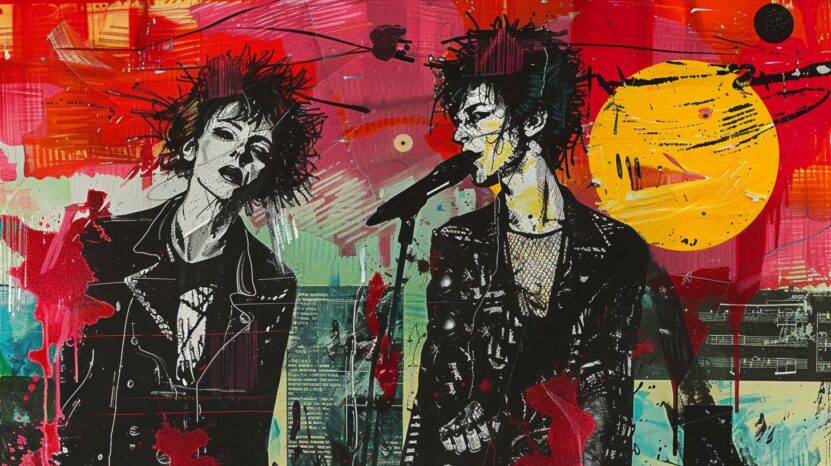
Rock is undoubtedly a genre that has been an integral part of my life. I’ve seen its ups, its downs, and ultimately, how the genre evolved in complexity and delivery. Thinking about this inspired me to banter with my friends about today’s state of the genre and how the bands that were influenced by the greats, such as Pink Floyd and Rolling Stones, carried the rock music legacy.
To say I love everything about the genre’s evolution would be a blatant lie, but there are definitely aspects that I appreciate and grew to love. With that said, in this post, I will talk about how today’s bands keep the spirit of rock music alive and discuss some of the genres that were created as a direct influence of this historic phenomenon. Let’s begin.
How Classic Rock Elements Evolved
Ever since its creation back in the late 1940s and early 1950s, rock music has been considered a sort of “taboo” genre, with its controversial lyrics and fast-paced sound. With today’s genres, such as heavy, death, or black metal, it might seem ridiculous that bands such as The Beatles, Rolling Stones, or Deep Purple were once considered “extreme”.
However, that is exactly what most people thought back in the day. Nowadays, what is considered “classic rock” has evolved in all aspects. The vocals are much more versatile, guitars are more aggressive, and the overall songwriting has so much more depth.
Notable Genres and Bands That Rock Gave Birth To

The rapid growth of rock music started in the United States in the post-World War II era. You could credit this movement to the people’s revamped feeling of peace and freedom that got their creative juices flowing, but there is definitely much more to it.
Over the years, the influence of the genre grew stronger as days, weeks, months, and decades passed. The musicians became more skilled, especially in the technical department, and the lines between classic and innovative blurred. Evolution was the inevitable consequence, and different subgenres were created. Here are some of the notable directions the rock music metamorphosis led to:
Blues Rock
When blues combines with rock, the outcome is a lot of character and emotion. This genre is by no means a complex one, at least not in the technical department. Where I truly found its value was in its simplicity.
The artists that really gave this subgenre a bump in the right direction were, nowadays, well-known names such as Eric Clapton, Jimi Hendrix, and Led Zeppelin. Hearing tracks such as “In the Light,” “Cocaine,” or “Room Full of Mirrors” for the first time shaped what would eventually become my musical taste.
Honestly, some of the artists in this genre were what drove me to further explore my mother’s cassette tape collection, which had plenty of gems and timeless bangers. Notable artists that took blues variation of rock to new heights include Greta Van Fleet, The Black Keys, The Temperance Movement, The Sheepdogs, The Black Keys, and my personal favorite, The White Stripes.
Folk Rock
This is the genre that saw the light of day for the first time back in the mid-1960s. It was an intriguing blend of folk and rock music that expanded on what classic variations of the genre had to offer. The pioneers of folk rock were artists such as Bob Dylan, Simon & Garfunkel, and The Birds.
Household names indeed, but what their influence produced was much more. Today, we have artists such as The Lumineers, Mumford & Sons, and The Decemberists who carry the torch for the genre and keep adding fresh and innovative layers to it.
Psychedelic Rock

The sixties was a decade that brought a lot of experimentation to the rock genre, and psychedelic rock, influenced by the psychedelic culture, was, in my humble opinion, by far the most creative and lucid.
Many attribute the influence of psychedelic drugs to the development of this genre (which is not far from the truth, by the way), but as history taught us, mind-altering experiences may, indeed, open up the creative flow, especially in the visionary minds of musicians.
Thus, the music scene was enriched by giants such as The Beatles, Pink Floyd, and The Doors, who created this inventive genre. These bands influenced bands that influenced bands I listen to today, so it’s safe to say their impact goes a long way.
Some of the notable musicians who took inspiration from OGs of psychedelic rock include Tame Impala, King Gizzard and the Lizard Wizard, The Black Angels, The Flaming Lips, and many, many more.
Progressive Rock
Now we are getting to some really cool stuff. Also known as prog rock, this genre took “mind-bending” to the next level. Not just for its obscure and weird nature but for dramatical improvement in technicality, lengthy compositions, complex structure, and most importantly, new highs in music skill level.
As a young man, I started developing a taste for more “niche” music, and as I grew older, prog rock definitely hit all the right spots in terms of what I love to hear. Pioneers of the genre were bands such as Genesis, Yes, and King Crimson, but nowadays, the bands that continued creating within this genre show just how much music style can progress.
We have bands such as Porcupine Tree, Dream Theater, Spock’s Beard, Riverside, and Haken that consistently move the bar of what we think is “progressive,” and it seems like possibilities in this genre are truly boundless.
Glam Rock
Glam variation is deeply rooted in the UK, where it first emerged back in the 1970s. It was quite a culture shock back in the day, as it was characterized by dubious clothing, makeup, hairstyles, and platform-soled boots.
Pretty crazy for those years, but innovative and revolutionary nonetheless. Some of my favorite performers from this era are David Bowie, T. Rex, and Queen, as they created powerful and timeless music that definitely deserves the “Evergreen” epitome.
But bands such as The Killers, The Darkness, Tame Impala, and Foxygen are the names that gave the glam subgenre a touch of modernity and turned everything upside down.
Punk Rock
Dating back to the 1970s, punk rock was more than a music genre, as it preached about anti-establishment, which was cleverly combined with simple yet catchy music. Of course, the audience that truly connected with this type of music was young and rebellious, which gave another level of energy to it, especially during live performances.
Pioneers of this genre were bands like The Ramones, The Sex Pistols, and The Clash. The version of punk rock we have today is more extreme, faster, and technically superior. The bands that showcase this the most are the likes of Green Day, The Flatliners, The Gaslight Anthem, Rancid, The Lawrence Arms, and many, many more.
Heavy Metal

And we’ve finally arrived at the genre that is my favorite one – heavy metal. It is by far the most extreme of the ones I’ve listed so far, and it differs in so many aspects from classic rock. However, the essence remains the same.
It’s all about solid and precise guitar work, thought-provoking lyrics, and extreme vocals. At least, that’s what the base was at first. The pioneers such as Iron Maiden, Judas Priest, Motorhead, Metallica, and Black Sabbath were something that no one had heard before, and when these bands appeared on the scene during the late 70s and throughout the 80s, they were “the most dangerous bands on the planet.”
These performers influenced the genre even more, and the bands that followed and created subgenres of their own, such as death, black, and technical metal, took the “extreme and aggressive” part of this music further and further.
Although it sometimes seems impossible, heavy metal keeps evolving and mixing with various genres, giving it even more progression. I simply can’t wait to hear where this genre will go next.
Alternative Rock
This is the genre that often sparks arguments between me and my friends. I say that it is barely rock music, they claim it’s otherwise, and we just keep running in circles. One thing is the fact – alternative rock was and remains a highly influential genre, especially for modern artists.
Bands such as Nirvana, Pearl Jam, and Radiohead pioneered the genre, and their music gained the following, which gave birth to bands such as The Strokes, Cage the Elephant, and Royal Blood.
Again, this is not my cup of tea, but the influence of this genre and bands within it is undeniable.
Indie Rock
The indie subgenre originated in the United States and the United Kingdom during the 80s. The term “indie” originally referred to independent record labels, but as time passed, the meaning changed, and nowadays, it represents a genre of its own.
Some of the most popular indie rock names include Arctic Monkeys, The Smiths, and Arcade Fire, but being the modern and popular genre today, new names appear on the scene almost on a daily basis.
The Bottom Line
Rock’n’roll is alive and well – that much is plain to see. The new artists keep breathing the fresh air into this genre’s lungs, and with that, the evolution and consistent development is genre is possible.
As long there is someone to carry the torch for it, rock music will never die. Although the genre has been pushed a bit into the underground circles in the modern era, and it seems like the golden days of rock are over, the new names on the scene keep the spirit alive, and I, for one, am excited about the innovations this genre will deliver in the future.


